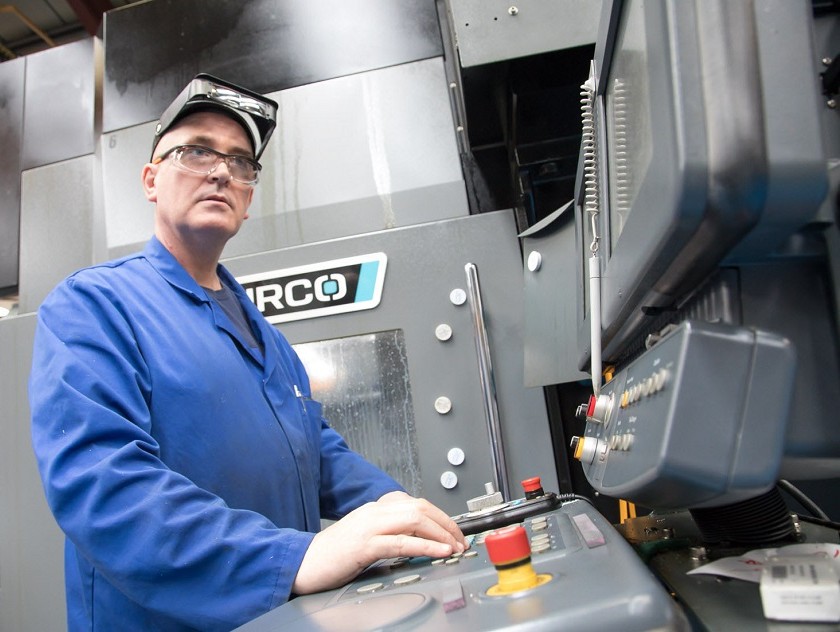Small to medium-sized (SME) manufacturers across Greater Birmingham are being urged to take a slice of a £6.5m funding boost to help them recover from the Covid-19 pandemic and address key barriers to growth.
The Manufacturing Growth Programme, which is funded by ERDF and delivered by Oxford Innovation Services, has been extended until December 2022 and will give a further 2800 companies access to industry experts and grants to tackle immediate business issues and support improvement plans.
This additional backing has the potential to safeguard and create hundreds of new jobs and takes the total package of support the initiative is able to deliver to £18.3m, with Greater Birmingham and Solihull LEP agreeing to inject a ring-fenced £500,000 for businesses it supports.
Firms are given access to a dedicated local manufacturing growth manager, who will use GROWTHmapper - an in-depth business diagnostic tool - to develop an individual action plan and support business projects, ranging from environmental improvements, leadership and management and marketing to people and skills, quality and supply chain development.
“All the media attention is on the headline manufacturers and how they are coping in the wake of Covid-19…it’s our job to look at how the smaller companies supporting these big businesses are performing and what we can do to help them,” explained Martin Coats, managing director of the Manufacturing Growth Programme.
“Our track record in delivering on-the-ground expert support was pivotal in us securing an additional £6.5m of funding that is ring-fenced for ensuring SME manufacturers can overcome barriers to growth and return to doing what they do best which is making things.
“Helping manufacturers is not easy and you need a tailored approach, delivered by experts who know what it is like working in industry. The Local Enterprise Partnerships (LEPs), their local Growth Hubs and the Ministry of Housing Communities and Local Government have seen first-hand the value we add to firms in their respective areas and this has resulted in a further commitment to support us for another two and a half years.”
The Manufacturing Growth Programme is the only dedicated business support programme for SME manufacturers in Greater Birmingham, delivering £837,000 of grants since its launch in October 2016.
This has been used to assist in excess of 550 companies, creating 542 local jobs and safeguarding hundreds more.
A recent survey delivered by MGP, in partnership with South West Manufacturing Advisory Service, revealed an urgent need for greater and faster financial support from the Government as they confront plummeting sales, production volumes and the prospect of job cuts amid the ongoing Covid-19 pandemic.
“It is no great surprise to see that every indicator for confidence among firms appears to have worsened over the last six months. That said, it is heartening to see that some companies are adapting to the situation by diversifying their processes and product ranges in all manner of innovative ways,” said Martin.
“While the number of projects we have supported has been maintained since the start of the Covid-19 crisis, demand has shifted from the larger SMEs towards micro businesses. This has also led to a change in the type of assistance. There is more demand for shorter-term marketing and product development projects and less for productivity and capacity building projects.
“As the economy recovers, it will be important to shift this pattern back, ensuring that support reaches larger SME manufacturers and delivers projects that rebuild capacity. The MGP is more important than ever in achieving this.”
Birmingham-based Kenton Instore, a specialist point of sale manufacturer for supermarkets and retailers, engaged with the Manufacturing Growth Programme to identify other NHS Trusts it could support with a new visor it had developed for nurses.
Peter Hughes, managing director, said: “I got a call from a former employee, who told me that nurses were making their own visors from A4 pocket wallets and did we have some plastic sheeting they could use. I knew that we could do better than that, so decided to pivot parts of our business to design visors that would be more durable and offer full protection for key NHS workers. In total, we have manufactured 25,000 visors.
“Our MGM introduced us to experts at the West Midlands Combined Authority and partners who were coordinating the supply of personal protective equipment (PPE) for frontline staff in the West Midlands, as well as providing details of procurement opportunities through Openopps - a free resource that tries to pull together all open source tenders.
“We also looked at other markets we could commercially explore, including construction, education and manufacturers looking to return to work safely.”
Going forward, the Manufacturing Growth Programme will be working closely with the Department for Business, Energy and Industrial Strategy (BEIS) to support the recovery of English manufacturers.
Grant programme designed to help following pandemic
Survey reveals sales and production volumes set to fall
MTC joins forces with Lloyds Bank to help manufacturers
Companies receive support to ease economic impact
Support on offer to allow training to continue
SMEs can access funding to adapt after pandemic
Scheme will offer support in aftermath of Covid-19
More than £1bn Covid support funds returned
Scheme offers guidance to firms who struggle to get Coronavirus support
Firms need information to help with future plans
Final round open with £4m available
Backing SMEs during the most challenging times
Support on offer for SMEs that need flexible funding
Partnership approach will help region get back on its feet
Unity Trust Bank initiative will help businesses struggling during pandemic